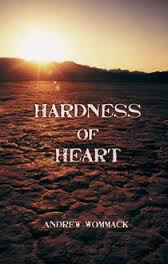The Gospel is called a scandal and a stumbling block for good reason. This from Martin Franzmann in his great book, “Follow Me – Discipleship in Matthew’s Gospel” from CPH – get it.
About The Author
Rev. Bernie Seter
Rev. Bernhard Seter has been a Pastor in the Lutheran Church—Missouri Synod for over 42 years. He served on the Board of LCMS World Relief and Human Care for ten years and is now the Chairman of the Board of International Missions. He has been privileged to travel around the world and see the churches' mercy work in action. He is convinced it is not only what we are "compelled" to do because of Christ; it is what we have been baptized for. Christ's love compels us, constrains us, and sends us forth.
Related Posts
1 Comment
Search
Blogroll
please note:
Your comments are welcome but will be held until approved to avoid misuse.
Comments posted by visitors to this site reflect the personal opinions of individuals and may not necessarily reflect the beliefs and practices or official positions of The Lutheran Church--Missouri Synod.
Individual articles from this blog may be reproduced by LCMS congregations (i.e., in church newsletters, bulletins, etc.) without writing for permission. Such reproductions, however, should credit the "Northern Crossings" blog as the source.
Archives
Tags
Bill Sharpe
Brother John
colonialism
Concordia Seminary St. Louis
Dahlstrom Motors
disaster
ebola
Erik Herrmann
flood
floods
Hilary
IRS
Justice
Ken Weinlaeder
Kenya
Law
LCMS
LCMS World Relief and Human Care
Luther
Lutheran Malaria Initiative
Lutheran Womens Missionary League
LWML
Mary Okeyo
Mercy
Minnesota North
Minot
mission
Missions
NFL Football
Northern Lights
prayer
Project 24
Rochester Central Lutheran School
State Department
Tea Party
terrorists
Tim Tebow
truth
Vikings
volunteers
Wadena
Wadena MN.
Wenceslas
Williston
Witness



To my small brain, some of this may have happened today in the senate with the vote to continue funding Planned Parenthood. How, oh how, can one not see that abortion and it’s ill affects are sinful? Through it all, we must remember that God is in control!